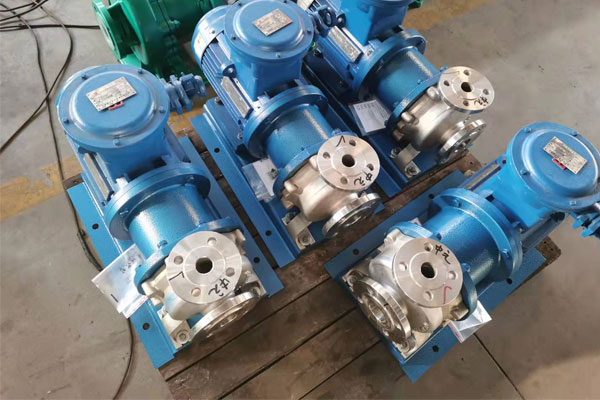Ethylene glycol pumps are widely used in various industrial applications for the transportation of ethylene glycol and similar fluids. However, the performance and reliability of these pumps heavily depend on the choice of seal material. In this article, we will delve into the selection of seal materials for ethylene glycol pumps, helping you make informed decisions for different operating conditions.
1. Rubber Seals:
Rubber seals are a common choice for ethylene glycol pumps and offer the following advantages:
Good Elasticity: Rubber seals provide effective sealing and are suitable for low to moderate pressure applications.
Corrosion Resistance: Ethylene glycol typically exhibits good compatibility with rubber seal materials, making it a suitable choice for handling this medium.
Cost-Effective: Rubber seals are often budget-friendly, making them suitable for projects with cost constraints.

2. Polytetrafluoroethylene (PTFE) Seals:
PTFE seals are another common choice for ethylene glycol pumps and come with several advantages:
Excellent Corrosion Resistance: PTFE demonstrates exceptional corrosion resistance to ethylene glycol and various chemical media.
Wide Temperature Range: PTFE seals can operate within a broad temperature range, making them suitable for both high-temperature and low-temperature applications.
Zero Leakage: PTFE seals provide outstanding sealing performance, minimizing the risk of leakage.
3. Metal Seals:
Metal seals play a significant role in high-pressure ethylene glycol pumps and offer the following advantages:
High-Pressure Applications: Metal seals are suitable for high-pressure ethylene glycol pumps, ensuring reliable sealing.
High-Temperature Resistance: Metal seals can withstand higher temperatures, making them ideal for high-temperature applications.
Wear Resistance: Metal seals generally exhibit good wear resistance, making them suitable for situations where the fluid may contain solid particles.
Considerations for Choosing Ethylene Glycol Pump Seal Materials:
Operating Pressure: Select seal materials according to the working pressure of your application.
Temperature Range: Consider the required temperature range to ensure that the seal material can function within this range.
Fluid Properties: Understand the concentration and other properties of the ethylene glycol to be transported to select a seal material with the appropriate corrosion resistance.The choice of seal material for ethylene glycol pumps directly impacts equipment performance and reliability. Different operating conditions and requirements call for different seal materials. By carefully considering the working conditions, you can choose the most suitable ethylene glycol pump seal material, ensuring efficient fluid transport and system reliability.





 +86 18130251359
+86 18130251359 teflowpumps@tlpumps.com
teflowpumps@tlpumps.com








 +86+0563-5093318
+86+0563-5093318
